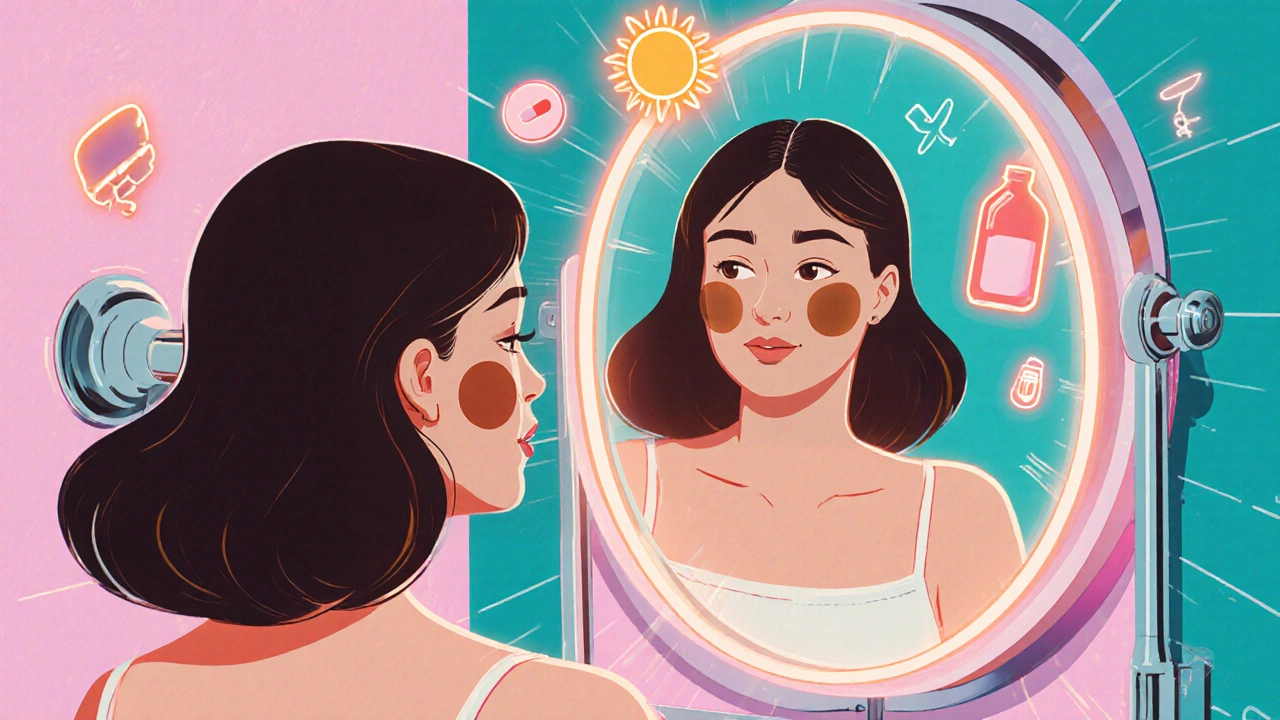Skin Lightening: Safe Options, Risks, and What Actually Works
When people talk about skin lightening, the use of topical products or treatments to reduce melanin and even out skin tone. Also known as skin whitening, it's often sought to fade dark spots, melasma, or post-acne marks—but it's not a simple cosmetic fix. This isn’t just about wanting brighter skin; it’s about managing hyperpigmentation, a real condition tied to sun damage, hormones, or inflammation. And while some products promise quick results, many carry hidden dangers.
One of the most common active ingredients in skin lightening products is hydroquinone, a chemical that blocks melanin production. Used under medical supervision, it can help with stubborn dark patches. But over-the-counter versions, especially from unregulated sources, often contain unsafe levels—or worse, mercury and steroids. These can cause permanent skin damage, kidney issues, or even a condition called ochronosis, where skin turns blue-black. Then there are natural alternatives like kojic acid, azelaic acid, and vitamin C, which work slower but are far safer for long-term use. The truth? No product works overnight, and the best results come from combining gentle treatments with strict sun protection.
What you won’t find in flashy ads is how often skin lightening ties into deeper issues—like post-inflammatory hyperpigmentation from acne, or melasma triggered by birth control or pregnancy. That’s why many of the posts in this collection focus on real treatments, not just creams. You’ll see comparisons between topical retinoids like tretinoin, a vitamin A derivative that speeds up skin cell turnover and fades discoloration, and alternatives like A-Ret Gel. You’ll find advice on how diet, sun exposure, and even stress affect skin tone. And you’ll see why some people turn to treatments like chemical peels or laser therapy, and what risks come with those too.
There’s no one-size-fits-all solution. What works for someone with sun-induced dark spots might do nothing for hormonal pigmentation—and could even make it worse. The key is understanding your skin’s cause, not just chasing a lighter shade. This collection gives you real, practical comparisons between products, ingredients, and methods—so you don’t waste money or risk your skin on something that sounds good but doesn’t deliver. What follows isn’t a list of miracle cures. It’s a guide to what’s proven, what’s risky, and what you should ask your doctor before you start.
 20 October 2025
20 October 2025
Best 5 Natural Melasma Remedies for Faster Skin Lightening
Discover five proven natural remedies-turmeric, licorice, aloe vera, apple cider vinegar, and green tea-to treat melasma safely and effectively, plus lifestyle tips for lasting skin lightening.
Latest Posts
-

Top Alternatives to Lasix for Edema Relief: Real Case Studies and Medication Options
-

Bloating after a meal: the importance of a balanced gut microbiome
-

Leprosy and Human Rights: Advancing Equality and Dignity
-

PrescriptionPoint Online Pharmacy: Safe, Affordable Medication Delivered
-

Biosimilar Switching: What Happens When You Change From Originator

11